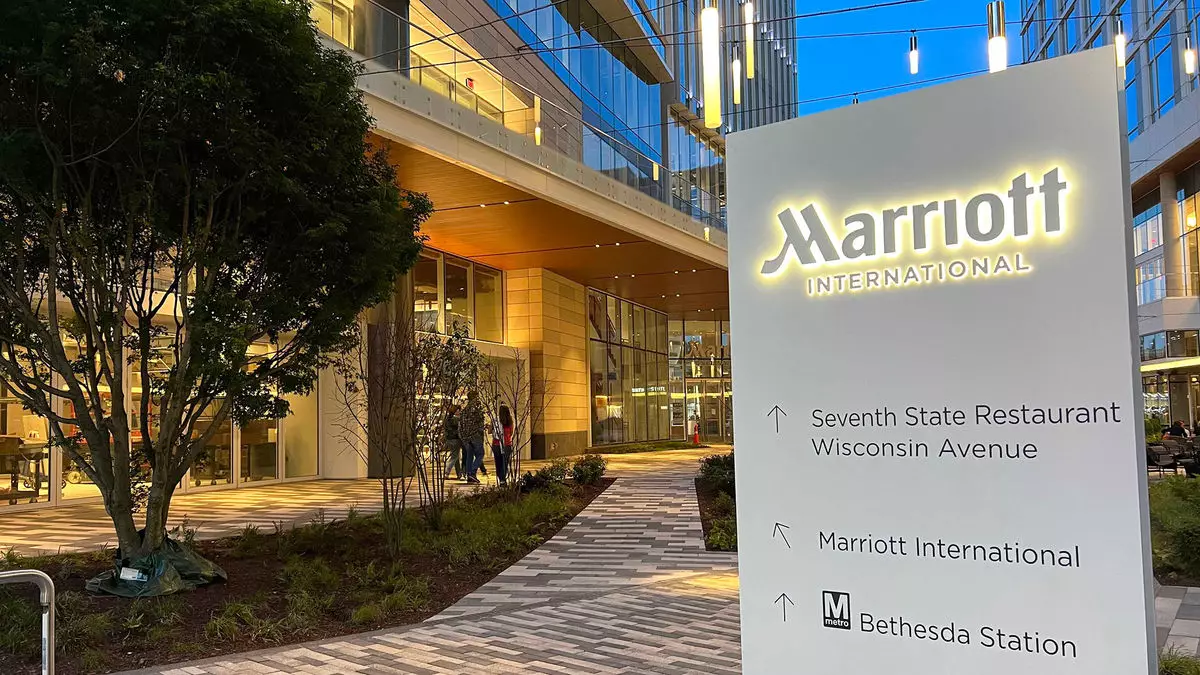In the ever-evolving landscape of the hospitality industry, Marriott International’s recent quarterly earnings provide insights into how global economic and political factors impact travel patterns. Despite potential challenges stemming from economic tensions, particularly those exacerbated during the Trump administration, CFO Leeny Oberg remained optimistic about the company’s resilience. The ongoing dialogue between the U.S. and its neighboring countries, Canada and Mexico, highlights the delicate balance between economic relations and travel.
The Trump administration’s temporary halt on imposing tariffs on goods from Canada and Mexico showcases the significant dependency of the U.S. economy on its nearest trading partners. Although Oberg recognized the worrisome implications of reduced travel from these nations—including a projected $2.1 billion loss if Canadian tourists were to significantly decrease their visits—she pointed out that visitors from these countries only constitute a marginal segment of Marriott’s overall revenue in the U.S., accounting for about 1% to 2% of room nights.
Assessing Revenue in a Shifting Landscape
The U.S. Travel Association’s data underscores a paramount dependence on varied international markets for tourism. However, during the fourth quarter, Marriott showcased remarkable stability, reporting an increase in revenue per available room (RevPAR) by 5%. This uptick was fueled chiefly by a 3% increase in average daily rates (ADR) and improvements in occupancy rates. The resilience observed around the November U.S. presidential election confirms that demand dynamics are not solely dependent on international markets but also affected by domestic factors.
As CEO Anthony Capuano remarks, heightened demand—a result reflecting consumer confidence—continuously supports revenue growth. This observation is particularly encouraging considering the broader context of economic uncertainty stemming from fluctuating international relations.
Investments in Technology: A Long-Term Vision
Marriott’s commitment to a digital transformation signals its proactive approach towards maintaining competitiveness. With Oberg detailing plans for a considerable increase in technology investments, it becomes evident that the company is focused on modernizing its property management and customer engagement systems. Such a strategic investment is projected to enhance customer experiences, subsequently leading to increased revenue generation across various services offered in hotels, from dining to recreation.
Furthermore, Capuano emphasizes the enhanced guest experience anticipated through the new reservations platform, which is designed to streamline bookings beyond just room accommodations. The potential for significant revenue generation through ancillary services positions Marriott favorably against competitors, leveraging technology not only as a means to efficiency but as a path to customer loyalty.
In parallel with their technological pursuits, Marriott’s capital allocation towards refurbishing its Elegant Hotels properties in Barbados also bears mentioning. Following its acquisition of the Elegant portfolio in 2020, Marriott has made considerable strides in enhancing these resorts, albeit with the majority of renovations expected to conclude by 2025. This long-term commitment to property enhancement reflects a keen understanding of the value added by superior facilities and amenities in attracting guests.
Oberg’s insights into potential future sales of these resort assets further emphasize the strategic vision fostering sustained value creation. By adhering to long-term contracts while considering the interests of investors, Marriott is cultivating a pathway for future growth while navigating current economic climates.
As the hospitality sector rebounds from recent challenges, Marriott International stands poised to leverage its strategic advantages. The fourth-quarter report indicates a healthy total revenue increase to $6.4 billion and rising operating income, suggesting a robust financial foundation. With the luxury and resort segments witnessing notable RevPAR growth, Marriott’s diverse offerings and investments reflect a company not merely reacting to external pressures but actively shaping its future trajectory.
While external factors loom, Marriott’s actions—including its focus on technology, property enhancements, and an eye towards investor relations—signal a company finely attuned to both current realities and future opportunities. As the hospitality industry faces continuing changes, Marriott’s proactive strategies lay the groundwork for sustained success amidst unpredictability.


Napsat komentář